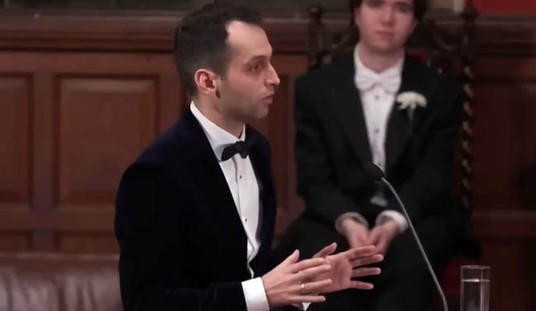Following President Barack Obama’s prime time address last week in which he outlining his strategy to combat the Islamic State, a public opinion poll found that Americans were broadly supportive of that mission. While the American people had little faith in the commander-in-chief’s narrowly defined strategy aimed at combating ISIS, two-thirds of the public agreed that the threat was great enough to justify military action.
Few military experts believe, however, that the ISIS threat can be neutralized from the air. The White House, determined to avoid committing American ground troops to the mission, plans to create an indigenous army of rebels to disrupt ISIS (and Bashar al-Assad) in Syria.
It’s a dubious strategy, and one that should have been embraced months if not years ago if it was going to be successful. Nevertheless, this is the only one the White House has at the moment to confront a group which has executed terrorist attacks against the United States and likely plans more to come.
“The Pentagon says however training such a force could take a full year,” CNN’s Jim Sciutto reported on Friday. That’s a long time to wait to see any objective successes in Syria. The administration has already conceded that the mission to roll back ISIS in Iraq and confront them in Syria will outlast Obama’s presidency, and discontentment over the conduct of this war is only likely to grow in the interim.
Some savvy political actors are banking on the fact that this war’s popularity will collapse long before Obama boards Marine One for the last time. On Thursday, both chambers of Congress easily passed a resolution authorizing Obama’s plan to train and equip rebels to fight ISIS in third-party countries. In the House, 273 members voted in favor of arming and training Syrian rebels. In the Senate, 78 agreed.
Not everyone in the upper chamber was on the same page, however, and the 22 who opposed the strategy included a few household names.
Elizabeth Warren, Kirsten Gillibrand, Rand Paul, Ted Cruz all vote NO on arming Syrian rebels. What do they all have in common?
— Jeremy W. Peters (@jwpetersNYT) September 18, 2014
Aside from their insatiable need to self-promote, there is only one other thing: presidential aspirations.
A few are openly flirting with a presidential bid while others are merely keeping their options open in the event that a draft movement develops around them. Regardless, their calculation is that this war will not be as popular in 18 months as it is today. Most likely, they are correct.
The fact that the public supports the mission to combat ISIS but not the commander-in-chief waging that campaign suggests that support for the war on ISIS is already soft. As engagement ramps up, and the number of uniformed American service personnel in Iraq balloons, it is a likely prospect that a public already skeptical of the ISIS campaign will only grow more so. As a rule, wars do not grow more popular over time.
The familiar traits associated with the Republican and Democratic Parties is likely to return as the 2016 cycle ramps up. With the exception of Sen. Paul, a component of the battle to become the GOP’s next presidential nominee will be a competition to see who can stake out the most hawkish position on ISIS. Democrats, for their part, will reach for a dovish (framed as “smarter”) approach to the campaign. In both races, the central theme will be repudiating Obama’s approach to this war.
At least, that is what these key senators are betting on today. It seems like a smart bet.









Join the conversation as a VIP Member